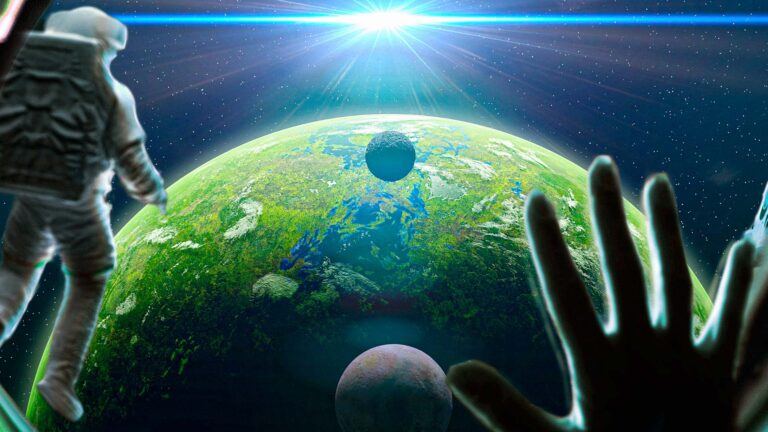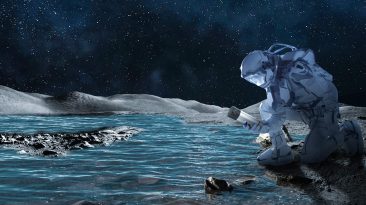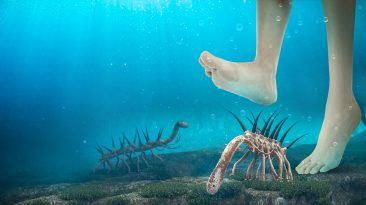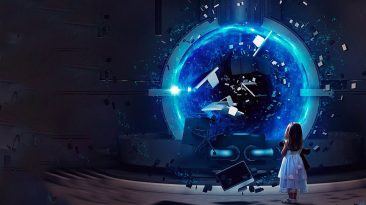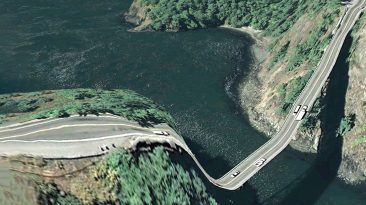You’ve traveled thousands of light-years through interstellar star systems. And now you’re stranded on a planet you know nothing about. As long as you’ve got oxygen, water and food aboard your spaceship, you should stay inside and figure out what you’ve got going on around you. But your supplies wouldn’t last forever. So the clock would be ticking.
You didn’t crash on an alien world to just die. Your mission is to collect any information you can on this planet. And try to survive in the process. Before you even got a glimpse of your surroundings, there’s one thing you’d need to figure out first. It’s the gravity of the planet you landed on. Sure, it could be just like back home. But the chances of that would be pretty low.
Realistically, this world’s gravity would be something you’d need to get used to. It could be lower than on Earth, and you’d feel lighter. Over time, it would make your vision blurred, your muscles shrink and your back hurt a lot. If it was stronger than on Earth, you’d feel heavier. And maybe it could be strong enough to keep you pinned to the ground or even break your bones.
Next, you’d need to find out what kind of star this alien planet is orbiting, and where in the star system it’s positioned. There would be a high chance that you’d be on an exoplanet orbiting the most common type of star in the Universe, a red dwarf. Many of the 4,000 exoplanets we have discovered orbit these. But red dwarfs are smaller and cooler than our own Sun.
So the planet you’ve landed on would have to orbit its star at a distance much closer than Earth orbits the Sun. At least if you wanted it to be habitable with liquid water on the surface. Being this close could result in a harsh environment. If the star was only a few billion years old, you would need ways to protect yourself from high-energy blasts of ultraviolet and X-ray radiation.
If you couldn’t shield yourself, you’d need to seek shelter underground. Otherwise, you’d suffer from long-term radiation exposure. This would cause cataracts, make you sterile and greatly increase your risk of cancer. While you’re observing the star, you’d need to take note of whether there’s a sunrise and sunset. Or could it be that it seems to never move in the sky?
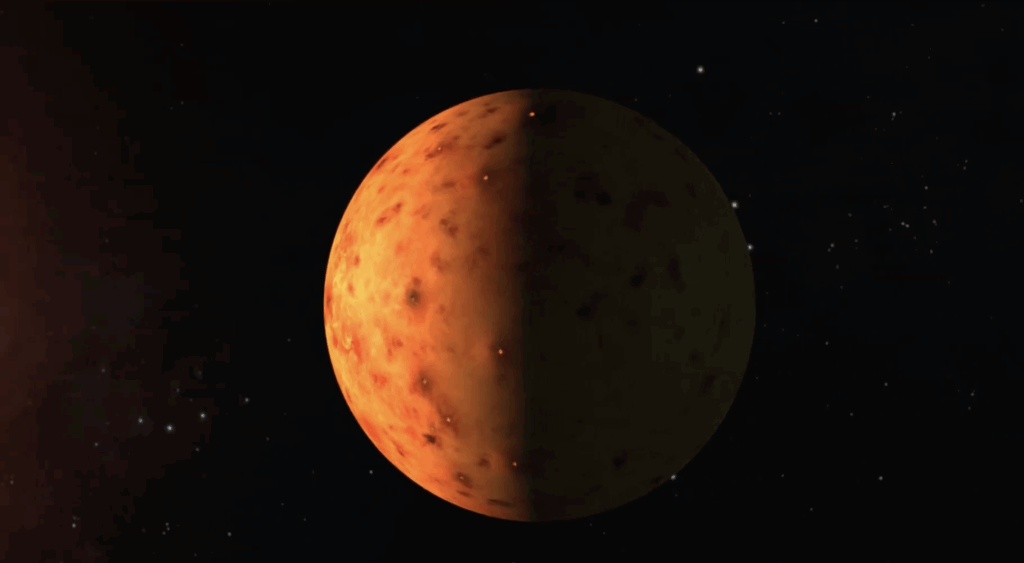
This would be another danger of being so close. Your new home planet could be tidally locked. This means one side of this world would always experience daylight, and the other side would always be shrouded in darkness. And it wouldn’t just be a matter of light or dark. It would also mean that one side would be scorching hot. And the other would be freezing cold.
You’d be on a planet caught between two extremes. And your best bet for surviving would be to head toward the terminator line. This would be the thin strip of land between the dayside and nightside. Here you’d have a goldilocks situation where it’s not too hot and not too cold. But you’d also have the incredible treat of never-ending dusk and dawn.
The next thing you’d want to assess is whether you’d have an atmosphere that you could breathe. Just because it’s in the habitable zone wouldn’t mean it’s habitable for you. You’d need oxygen. Lucky for you, astronomers found that exoplanets with breathable air are more common than you might think. But keep your oxygen tank close by as you experiment with breathing out there.
As an astronaut, you’d already have been exposed to many of the hardships that come with the job. Living with different levels of gravity, various magnetic fields, and, of course, psychological stress. But landing on an alien planet, you’d have a few more things to add to the list. If you had a weakened immune system, you could be vulnerable to infection from microorganisms never seen before.
That would make you patient zero on a planet where you’d be the closest thing to a doctor. Researchers suggest that all kinds of lethal bacteria or viruses could survive in the extremely harsh conditions of space. So you’d need to take precautions. And not even just for your own protection. But for the possible life on this alien planet.
You’d be carrying who knows how many pathogens and microorganisms from back on Earth. These could kill or wipe out organisms that you haven’t even detected yet. Speaking of which, could there be life on this planet you’ve crashed into? If you wanted to find out, your best bet would be to head to the nearest source of water.
Don’t get overly excited just yet. The most likely possibility is that you’d only discover microorganisms. But that wouldn’t completely rule out the chances that intelligent life could be waiting for you around any corner. If you did make first contact with an intelligent life form, the first thing you’d have to do would be to try communicating with it.
After all, you wouldn’t want to make the most amazing discovery in human history only for them to kill you out of fear or aggression. You could try using Lincos. A Dutch mathematician invented this language in the 1960s. And he meant it for one purpose only. To speak with aliens. You’d start slow and develop the language further so both you and the aliens can understand.
First, you’d need to make sure they grasped the concept of numbers. And then you’d move on to complex concepts, like love or death. But the chances would be higher that you could land on a planet with seemingly no intelligent life. You’d be all alone. No humans or aliens to talk to.
Spending thousands of hours in total isolation, you could eventually suffer from hallucinations and hear voices in your head. This would be your new reality. All of this wouldn’t change the fact that you want to survive. You’d have to keep your wits about you to put any planetary resources you can find to use.
You might not be back home for a while. In the meantime, you’d still have to eat. If there were alien life forms walking past you, you could start looking at them like they’re cartoon roast chickens. Imagine eating an alien.
Sources
- “Red Dwarf Star | Definition, Facts, & Temperature”. 2022. britannica.com.
- “Assessing The Habitability Of Planets Around Old Red Dwarfs”. 2020. nasa.gov.
- “What Is Tidal Locking?”. Fraser Cain. 2015. phys.org.
- “How does radiation affect the human body in space?”. 2022. asc-csa.gc.ca.
- “Science Fiction Might Be Right After All. There Might Be Breathable Atmospheres Across The Universe”. Evan Gough. 2019. universetoday.com.


